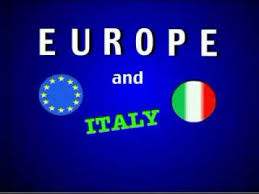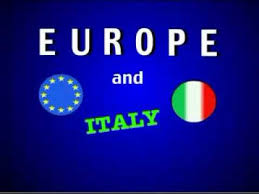
While Italy and the European Union remain in a deadlock over the proposed budget by Rome, analysts are of the view that more importance needs to be given to the markets.
In a recent finding and calculation by the EU have indicated that the speed of growth of the Italian economy in the next two years would not be as fast as Italy is expecting and this is one of the causes of the deadlock between the two parties.
The Italian government dismissed the claims of the EU about its economic growth forecast and have termed the analysis of the spending plans of Rome by the EU to be “inadequate and partial”,
The Italian response to the actions by the EU came after Brussels had said earlier that the proposed 2019 budget deficit of Italy would be 2.9 per cent instead of the 2.4 per cent as projected by Italy. The next year’s budget as prepared by Rome and presented for approval with the EU had been rejected by the latter because it violated EU d\fiscal rules after the anti-establishment government in Italy announced enhancement in government spending.
Brussels' proposed budget deficit cuts would be "suicide" for Italy’s economy, said Italy's Economy Minister Giovanni Tria on Friday. The financial market has been impacted by the duel between Rome and Brussels with an increase in the yield spread between German and Italian debt – a measure that is commonly used as a measure for risks for European investors.
According to analysts, this tussle is likely to continue the ground work for ultimately imposing possible sanctions on Italy is being done by the EU. However, there is no history of any EU member state being fined for not following the EU fiscal norms.
The question that investors are eager to know however is the reaction of the markets to this debacle.
"Continued pressure from the EU, further ratings downgrades and even higher risk spreads will force Rome to soften its policies by just enough in coming months to stave off an immediate debt crisis," Florian Hense, economist at Berenberg said.
Since May, there has been a steady increase in yields on Italian debts. This coincided with Five Star Movement and Lega – the two populist parties in Italy got together to form the government in Rome. Given the fact that the debt burden on Italy is huge, investors have been jittery about the spending plans of the Italian government. The debt on Italy is the second largest in the EU and is about 130 per cent of its gross domestic product.
"The true guardians of fiscal discipline will be, as usual, financial markets," Lorenzo Codogno, chief economist at LC Macro Advisors said in a note to clients Thursday.
The Italian economy would be at risk because of rising interest rates. It would not only be difficult for the Italian government to fund itself, the Italian banking system would also come under additional pressure.
(Source:www.cnbc.com)
In a recent finding and calculation by the EU have indicated that the speed of growth of the Italian economy in the next two years would not be as fast as Italy is expecting and this is one of the causes of the deadlock between the two parties.
The Italian government dismissed the claims of the EU about its economic growth forecast and have termed the analysis of the spending plans of Rome by the EU to be “inadequate and partial”,
The Italian response to the actions by the EU came after Brussels had said earlier that the proposed 2019 budget deficit of Italy would be 2.9 per cent instead of the 2.4 per cent as projected by Italy. The next year’s budget as prepared by Rome and presented for approval with the EU had been rejected by the latter because it violated EU d\fiscal rules after the anti-establishment government in Italy announced enhancement in government spending.
Brussels' proposed budget deficit cuts would be "suicide" for Italy’s economy, said Italy's Economy Minister Giovanni Tria on Friday. The financial market has been impacted by the duel between Rome and Brussels with an increase in the yield spread between German and Italian debt – a measure that is commonly used as a measure for risks for European investors.
According to analysts, this tussle is likely to continue the ground work for ultimately imposing possible sanctions on Italy is being done by the EU. However, there is no history of any EU member state being fined for not following the EU fiscal norms.
The question that investors are eager to know however is the reaction of the markets to this debacle.
"Continued pressure from the EU, further ratings downgrades and even higher risk spreads will force Rome to soften its policies by just enough in coming months to stave off an immediate debt crisis," Florian Hense, economist at Berenberg said.
Since May, there has been a steady increase in yields on Italian debts. This coincided with Five Star Movement and Lega – the two populist parties in Italy got together to form the government in Rome. Given the fact that the debt burden on Italy is huge, investors have been jittery about the spending plans of the Italian government. The debt on Italy is the second largest in the EU and is about 130 per cent of its gross domestic product.
"The true guardians of fiscal discipline will be, as usual, financial markets," Lorenzo Codogno, chief economist at LC Macro Advisors said in a note to clients Thursday.
The Italian economy would be at risk because of rising interest rates. It would not only be difficult for the Italian government to fund itself, the Italian banking system would also come under additional pressure.
(Source:www.cnbc.com)





